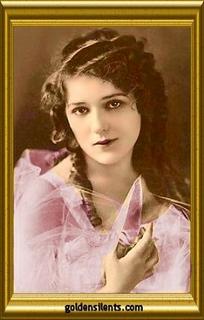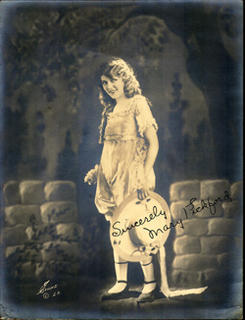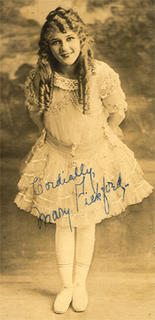are bits of action between dialogue that jumpstart the reader’s imagination so they know what the characters are doing, where they are, what they’re thinking, etc.
, these are just speaker attributions, put there so we know who’s talking.
These are Beats.
Nora Roberts: SKIN DEEP P-17 (More leisurely. Long beats, introducing her day-to-day and raises mystery on Larry Washington. Could he be her stalker?)
“Such incredible bulk,” the stylist murmured as she aimed the hand-held dryer. “I know women who would sell their blue-chip stocks for hair as thick as this. And the color!” She bent down to eye level to look in the mirror at the results of her work. “Even I have a hard time believing it’s natural.”
“My grandmother on my father’s side.” Chantel turned her head a bit to check her left profile. “I’m supposed to be twenty in this scene, Margo. Am I going to pull it off?”
With a laugh, the stringy redhead stood back. “That’s the least of your worries. It’s a shame they’re going to dump rain all over this.” She gave Chantel’s hair a final fluff.
“You’re telling me.” Chantel stood when the bib was removed. “Thanks, Margo.” Before she’d taken two steps, her assistant was at her elbow. Chanted had hired him because he was young and eager and had no ambitions to be an actor. “Are you going to crack the whip, Larry?”
Only the Beats:
the stylist murmured as she aimed the hand-held dryer. (murmured instead of said, “aimed”, wouldn’t blow dryer be better? Can’t we assume it’s hand-held since she’s “aiming” it?)
She bent down to eye level to look in the mirror at the results of her work. (can’t we assume if she’s looking in the mirror… it implies she’s done styling ie. results of her work)
Chantel turned her head a bit to check her left profile. (isn’t “a bit” description? Makes it easier to visualize? A bit is more precise)
With a laugh, the stringy redhead stood back.
She gave Chantel’s hair a final fluff.
Chantel stood when the bib was removed. (not A-B action, more like B-A)
Before she’d taken two steps, her assistant was at her elbow. Chanted had hired him because he was young and eager and had no ambitions to be an actor.
Stylist – kissing up (big compliments)
Beat: her job
“murmured” – makes her more feminine
“aimed” -- sounds like an expert
“bent down to eye level to look in the mirror at the results of her work “ – she cares about her work and makes sure it’s good
“stood back”; “she gave Chantel’s hair a final fluff – again, an expert, assessing her work/art
Chantel – an experienced client, she’s had her hair done many times before
Beat: her “star” status
“turned her head a bit to check her left profile” – she’s graceful with her movements ie. “a bit” and knows what she likes “check her left profile”
“stood when the bib was removed” – she knows when to get up, she’s done this before
Larry – who is the stalker? Him?
Beat: suspicious
“before she had taken two steps, her assistant were at her elbow” – snuck up on her? Surprised her. Is he the sneaky type? The type who’d be a stalker?
Carl Hiassen’s Lucky You
p-3
“Two hunnert bucks,” said Chub, scratching his scalp with a salad fork.
“I’m a little short on cash. You like lobster?”
“Who don’t?”
So they’d worked out a trade—the bogus disabled parking permit in exchange for ten pounds of fresh Florida lobster, which Bode Gazzer had stolen from a trapline off Key Largo.
Okay, wait, how come Hiassen, or can I call him Carl, change the spelling of “hundred” to hunnert? The book said not to do that. But then again, exceptions? Is it because it’s Hiassen? Or, hunnert has to be hunnert. That’s how it sounds and so it must be. (we’ll have to ask Mr. King, author of this book)
Okay, the one Beat. “scratching his scalp with a salad fork.”
Well, shows Chub is one uneducated, not very clean kept guy who’s also a criminal with mostly minor offenses.
Beat: his uneducated, unkept ways
p-46
Demencio was carrying out the garbage when the red pickup rolled to a stop under the streetlight. Two men got out and stretched. The shorter one wore pointed cowboy boots and olive-drab ponytail and sunken drugged-out eyes.
Demencio said: “Visitation’s over.”
“Visitation of what?” asked the hunter.
“The Madonna.”
“She die?” The ponytailed one spun toward his friend. “Goddamn, you hear that?”
Demencio dropped the garbage bag on the curb. “I’m talking about Madonna, the Virgin Mary, Jesus’ mother.”
“Not the singer?”
“Nope, not the singer.”
The hunter said, “What’s a ‘visitation’?”
“People travel from all over to pray at the Madonna’s statue. Sometimes she cries real tears.”
“No shit?”
“No shit,” said Demencio. “Come back tomorrow and see for yourself.”
The ponytailed man said, “How much you charge?”
“Whatever you can spare, sir. We take donations only.” Demencio was trying to be polite, but the two men made him edgy. Hicks he could handle; hard-core rednecks scared him.
The strangers whispered back and forth, then the camouflaged one spoke up again: “Hey, Julio, we in Grange?”
Demencio, feeling his neck go tight: “Yeah, that’s right.”
“Is there a 7-Eleven somewheres nearby?”
“All we got is the Grab N’Go.” Demencio pointed down the street. “About half a mile.”
“Thank you kindly,” said the hunter.
“Double for me,” said the ponytailed man.
Before the pickup drove away, Demencio noticed a red-white-and-blue sticker on the rear bumper: MARK FUHRMAN FOR PRESIDENT.
Definitely not pilgrims, Demencio thought.
Okay, let’s analyze this:Demencio was carrying out the garbage when the red pickup rolled to a stop under the streetlight. Two men got out and stretched. The shorter one wore pointed cowboy boots and olive-drab ponytail and sunken drugged-out eyes.
Intro of the chapter, answers Who? Demencio
What? Carrying out garbage, two men came (in cowboy boots and ponytail, drugged out eyes)
When? Now
Why? TBA
Where? His work place
Demencio said: (speaker attribution, just to say who’s speaking)
asked the hunter.
0
The ponytailed one spun toward his friend.
Demencio dropped the garbage bag on the curb.
0
0
The hunter said, (speaker attribution)
0
0
said Demencio. (speaker attribution)
The ponytailed man said, (speaker attribution)
Demencio was trying to be polite, but the two men made him edgy. Hicks he could handle; hard-core rednecks scared him. (thought)
The strangers whispered back and forth, then the camouflaged one spoke up again:
Demencio, feeling his neck go tight:
0
Demencio pointed down the street.
said the hunter. (speaker attribution)
said the ponytailed man. (speaker attribution)
Before the pickup drove away, Demencio noticed a red-white-and-blue sticker on the rear bumper: MARK FUHRMAN FOR PRESIDENT.
Definitely not pilgrims, Demencio thought.
Chub and Bodean:
Beats: suspicious
“spun toward his friend” –has agility? Volatile?
“whispered back and forth” –secretive
Their speaker attributions also compliments their Beats: “ponytailed man said,” “the hunter said” and “the camouflaged one spoke up”
Demencio:
Beats: done with work for the day (so Beats are determined by character’s Intent and Personality?) Here, Demencio’s actions/Beats mentioned reflects his Intent (he’s closing shop for the day)
 e Sex: Getting Characters' Chemistry Sizzling Off the Page!
e Sex: Getting Characters' Chemistry Sizzling Off the Page!






